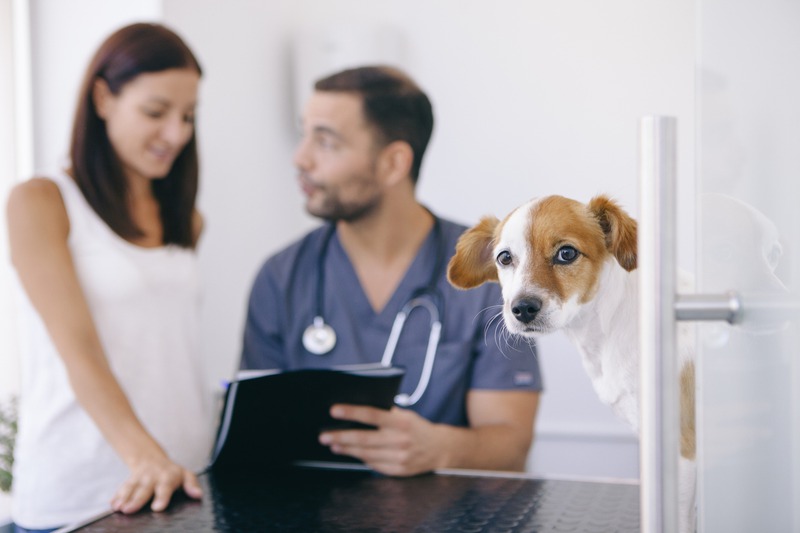As loving pet owners, we’re often caught up in the hustle and bustle of daily life. Sometimes, it feels like skipping your pet’s routine exam won’t make a big difference. But here’s the thing—these exams are more crucial than they may seem. Let’s break down why missing routine vet visits can lead to complications you might never have considered.
1. Routine Exams Are More Than Just Check-Ups
Routine veterinary exams aren’t just about vaccinations and checking weight. They’re comprehensive assessments that give the vet an opportunity to detect early signs of diseases, update you on your pet’s health, and provide essential guidance on care. Here are some areas that routine exams typically cover:
-
Physical health check
-
Vaccination updates
-
Parasite control
-
Screening for common diseases
-
Behavioral assessments
-
Dietary consultations
2. Missed Early Detection Opportunities
When you skip your pet’s routine exams, you lose critical chances for early disease detection. Many illnesses show subtle signs that only a vet might pick up during an exam. Early detection could mean the difference between a simple treatment and a long, painful, and expensive ordeal for your pet.
3. Deterioration of Dental Health
Pet dentistry is often overlooked but extremely important. Dental diseases can lead to severe issues such as kidney, liver, and heart problems. Regular exams give the vet a chance to assess your pet’s dental health. Don’t wait for visible signs of dental issues; check it out during routine visits to avoid severe complications.
4. Behavioral Changes and Their Implications
Behavioral changes are easy to dismiss but can indicate something more serious. Routine exams allow the vet to assess such shifts in behavior, which might signal underlying health issues or stress. This is crucial for the overall well-being of your furry friend.
5. Skipping Exams Could Lead to Higher Costs
Neglecting routine exams can lead to a financial burden in the long run. Treating advanced diseases and conditions often costs more than preventive care. By investing in regular vet visits, you may save considerable money down the road while ensuring your pet lives a healthier life.
6. Parasite Control and Prevention
Pets can easily contract parasites such as fleas, ticks, and worms. Routine exams include parasite control measures to keep these pests at bay. Failure to manage these parasites can lead to severe health complications, not just for your pet but potentially for your family as well.
7. Weight Management and Nutritional Advice
Obesity is a growing problem among pets, much like it is for humans. During routine exams, vets can help you manage your pet’s weight and offer dietary advice. Ensuring your pet maintains a healthy weight can prevent various conditions like diabetes and heart disease.
8. Specialized Care
In some cases, you may require specialized care for your pet. For instance, if your pet is dealing with orthopedic issues, consulting a veterinary orthopedic surgeon in New York, NY, could be crucial. Specialist recommendations often come up during regular check-ups, directing you to the appropriate care needed for your pet’s condition.
9. Vaccination Updates and Legal Requirements
Keeping your pet’s vaccinations up to date is not just about their health; it’s also a legal requirement in many areas. Skipping routine exams means you might overlook essential vaccinations, leading to vulnerable pets and potential legal complications.
Finding the Right Veterinarian
Choosing the right vet is pivotal for your pet’s health. It’s not just about any clinic but finding a reliable professional. For example, a reliable kitten veterinarian in New York can offer specialized care that meets the unique needs of young cats. Ensuring you have a trusted vet makes routine exams more beneficial and personalized.
10. The Emotional Impact on Your Pet
Routine vet visits help your pet become comfortable around the vet, reducing stress during emergencies. Skipping these visits can make future vet trips stressful for both you and your furry friend, leading to a negative impact on their overall emotional well-being.
11. Strengthening the Vet-Pet-Owner Relationship
Regular veterinary visits help build a strong, trusting relationship between the vet, your pet, and yourself. This bond is crucial for accurately diagnosing health issues and creating an effective treatment plan. A pet that is familiar with its vet and comfortable in the clinical environment will be less stressed, making examinations and procedures smoother and less traumatic.
12. End-of-Life Care and Quality of Life Assessments
One of the most challenging aspects of pet ownership is facing the end-of-life decisions for your furry friend. Routine exams help vets monitor the life stages of your pet and provide valuable insights into their quality of life. Knowing when to consider palliative care or humane euthanasia can be incredibly difficult. Still, these decisions are better made with the guidance and support of a vet who knows your pet’s medical history and current condition.
In a Nutshell
Skipping your pet’s routine exams can have far-reaching consequences. From missed early detection of diseases and deteriorating dental health to future financial burdens and emotional stress, the ramifications are significant. Regular vet visits are not just beneficial; they’re crucial for ensuring a long, healthy, and happy life for your beloved pet.


